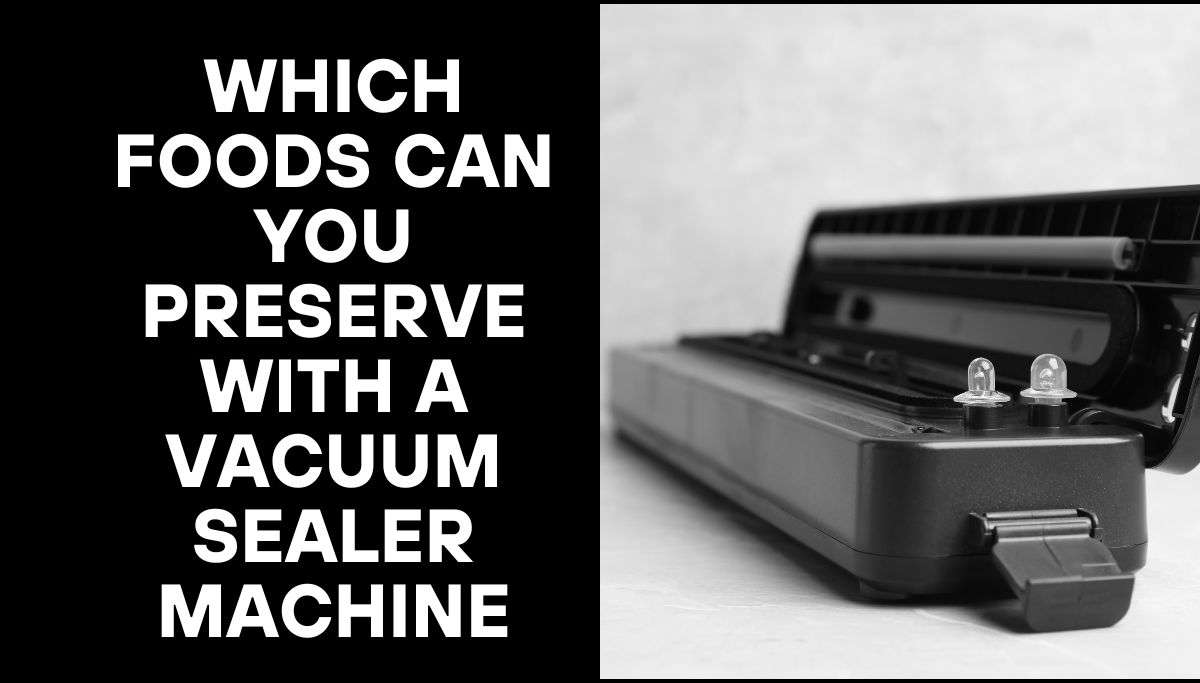
Oct 24,2023
Food preservation has long been a cornerstone of human civilization. Our ancestors discovered various methods to make food last longer, from drying and salting to pickling and fermenting.
In the modern age, one of the most efficient ways to extend the shelf life of your favorite foods is by using a vacuum sealer machine. These handy kitchen gadgets help lock in freshness and flavor while preventing spoilage. In this article, we will delve into the world of vacuum sealing and explore which foods can be effectively preserved using this method.
Before we dive into the specifics of which foods are suitable for vacuum sealing, let's discuss the numerous advantages of investing in a vacuum sealer machine.
One of the primary benefits of vacuum sealing is its ability to significantly extend the freshness and shelf life of various food items. By removing air from the packaging, vacuum-sealed bags prevent the growth of microorganisms, such as bacteria and molds, which cause food to spoil. This preservation technique can help keep your favorite foods fresh for longer periods.
According to the Food and Agriculture Organization of the United Nations (FAO), roughly one-third of all food produced for human consumption is lost or wasted each year.
Vacuum sealing can play a vital role in reducing this waste by preventing food spoilage. By preserving food effectively, you can save money and contribute to a more sustainable lifestyle.
Vacuum sealing is not only about preserving food but also about making storage more convenient. These machines allow you to neatly package your foods, making them easy to stack, store, and identify in your freezer or pantry. Vacuum-sealed bags also take up less space compared to traditional food storage containers.
Now, let's explore the wide range of foods that are ideal for vacuum sealing.
Fruits and vegetables are excellent candidates for vacuum sealing. Whether you have a surplus of garden-fresh produce or siply want to extend the life of store-bought items, vacuum sealing can help. Remember to follow a few essential tips for preserving these items effectively.
Some vegetables, like broccoli and asparagus, benefit from a quick blanching before sealing. This process helps maintain their color, flavor, and texture.
Delicate fruits, such as berries, can be vacuum sealed without crushing if you freeze them briefly before sealing.
When it comes to preserving meats and seafood, vacuum sealing is a game-changer. This method ensures that your proteins stay fresh for months. Here are some guidelines for sealing and freezing these items effectively:
Divide meats into meal-sized portions before vacuum sealing. This makes it easier to defrost only what you need.
Seal raw meats separately from other items to prevent cross-contamination.
Dairy products like cheese and milk can also be preserved with a vacuum sealer. Here's how:
Vacuum-sealed bags help prevent moisture loss and mold growth in cheese. Ensure that the cheese is wrapped in parchment or wax paper before sealing.
You can freeze milk for future use. Be sure to leave some room for expansion in the container, as liquids expand when frozen.
Beyond the obvious choices, vacuum sealing can be used for pantry staples like grains, pasta, and dried fruits. This is especially helpful if you buy in bulk. Here's how to do it:
Place these dry goods in vacuum-sealed bags to protect them from moisture, pests, and staleness.
While vacuum sealing is incredibly versatile, there are certain foods that do not fare well with this preservation method. It's essential to understand which items you should avoid sealing to prevent waste and disappointment.
Items like mushrooms, soft berries, and leafy greens are highly delicate and perishable. Vacuum sealing can cause them to compress and become mushy. These are better suited for other preservation methods, like freezing without vacuum sealing.
Foods with a high moisture content, such as raw mushrooms, can pose a problem when vacuum sealed. The machine may struggle to remove all the air, and the food may spoil faster.
Be cautious when sealing foods with strong odors, like onions and garlic. The odor can permeate the plastic and affect other foods stored in the same area.
To make the most of your vacuum sealer machine, consider the following tips:
Select a machine that suits your needs. For occasional users, a handheld model may suffice, while more frequent users may prefer a countertop vacuum sealer with extra features.
Ensure that your food items are clean and dry before sealing. Moisture can affect the sealing process and the quality of the preserved food.
Store vacuum-sealed items in appropriate conditions. Meats and other perishables belong in the freezer, while dry goods can be placed in your pantry or food storage area.
Aside from preserving, vacuum sealing can open up creative possibilities in the kitchen.
Prepare meals in advance by portioning and sealing ingredients. This can save time and reduce food preparation stress during the week.
Vacuum sealing is a fantastic way to marinate meats and infuse flavors. The airtight seal allows for deeper and quicker flavor penetration.
Sous-vide cooking, a method that involves cooking vacuum-sealed food in a water bath, has gained popularity. Vacuum-sealed bags are essential for this technique, ensuring that flavors and juices are locked in.
To ensure your vacuum sealer machine remains in good working order, practice regular cleaning and maintenance. If you encounter issues, consult your machine's manual for troubleshooting guidance.
A vacuum sealer machine is a valuable addition to any kitchen, offering an efficient and effective way to preserve a wide range of foods. By understanding which foods are suitable for vacuum sealing and following some simple guidelines, you can extend the shelf life of your Favorite ingredients, reduce food waste, and enjoy the convenience of well-preserved foods. So, why wait? Dive into the world of vacuum sealing and enjoy the benefits it brings to your kitchen and your life.